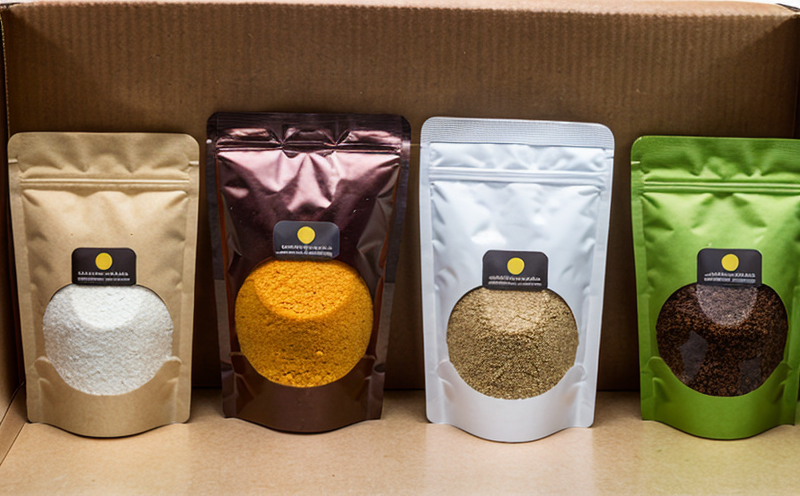Japan Positive List Compliance Testing for Food Contact Materials
The Japan Positive List System is a critical regulatory framework designed to ensure the safety of food contact materials (FCMs) and packaging used in food production, distribution, and consumption. This system mandates that all FCMs must comply with the specified substances listed by the Ministry of Health, Labour and Welfare (MHLW). The compliance testing for these materials ensures that they do not release harmful chemicals into food products, thereby protecting public health.
The testing process involves a series of rigorous analyses to verify that the materials meet the criteria set forth in the Positive List. This includes assessing the chemical composition, identifying potential migration substances, and ensuring that the FCMs are safe for use in contact with food. Compliance testing is essential not only for regulatory adherence but also for maintaining brand reputation and consumer trust.
The testing process typically involves several key steps:
- Sample preparation
- Chemical analysis using various analytical techniques such as GC-MS (Gas Chromatography-Mass Spectrometry), LC-MS/MS (Liquid Chromatography-Tandem Mass Spectrometry), and ICP-MS (Inductively Coupled Plasma Mass Spectrometry)
- Evaluation of the results against the Positive List criteria
- Reporting and certification
The Positive List is regularly updated, which requires ongoing compliance testing. Companies must stay current with these updates to ensure they are meeting regulatory requirements.
In addition to ensuring compliance with the Positive List, this testing also helps companies identify potential risks early in the product development process. This proactive approach can prevent costly recalls and legal actions, as well as safeguarding the integrity of their products.
For companies operating within Japan or exporting to this market, Japan Positive List Compliance Testing is a mandatory requirement. Failure to comply with these regulations can result in severe penalties, including fines, product seizures, and even business closures.
Why Choose This Test
- Promotes Regulatory Compliance: Ensures adherence to the Japan Positive List requirements, thus avoiding potential legal issues and sanctions.
- Enhances Product Safety: Identifies harmful substances that could migrate from FCMs into food products, thereby protecting consumer health.
- Improves Brand Reputation: Demonstrates a commitment to quality and safety, which can significantly enhance the reputation of your brand among consumers and regulators.
The Japan Positive List Compliance Testing is not just about meeting regulations; it’s about creating trust. By ensuring that your FCMs are safe for food contact, you demonstrate a high standard of responsibility towards your customers and the broader public.
| Test Method | Description |
|---|---|
| Gel Permeation Chromatography (GPC) | Determines the molecular weight distribution of polymers in FCMs. |
| Fourier Transform Infrared Spectroscopy (FTIR) | Identifies functional groups present in the sample, aiding in the identification of polymer types and additives. |
Competitive Advantage and Market Impact
Compliance with Japan’s Positive List is a significant advantage in the competitive market. It demonstrates your company's commitment to quality and safety, which can significantly enhance your brand's reputation among consumers and regulators. This compliance not only opens doors to the Japanese market but also signals to potential partners and customers that you are serious about maintaining high standards.
In addition to regulatory compliance, this testing provides valuable insights into the chemical composition of FCMs. These insights can guide product development efforts, helping companies innovate while ensuring safety. This proactive approach can lead to new product launches, improved formulations, and enhanced customer satisfaction.
The market impact is substantial as well. By adhering to the Positive List, you ensure that your products are safe for consumption, which can increase consumer confidence and loyalty. This can translate into increased sales and market share in a highly competitive industry.
Use Cases and Application Examples
- PET Bottles: Ensuring the safety of PET bottles used for carbonated beverages, which often come into direct contact with food products.
- Plastic Packaging: Verifying that plastic packaging materials are safe for use in food storage and transport.
| Product Type | Positive List Compliance Test |
|---|---|
| PET Bottles for Carbonated Beverages | Gel Permeation Chromatography (GPC) |
| Plastic Packaging Materials | Fourier Transform Infrared Spectroscopy (FTIR) |
The following are some real-world examples of how this testing is applied:
- PET Bottle Manufacturer: A company that produces PET bottles for carbonated beverages undergoes GPC to ensure the molecular weight distribution of polymers in their products.
- Plastic Packaging Supplier: A supplier of plastic packaging materials uses FTIR to identify functional groups and additives, ensuring compliance with the Positive List criteria.
In both cases, these tests help to ensure that the FCMs meet the stringent requirements set by the Japanese government, thereby enhancing product safety and regulatory compliance.





